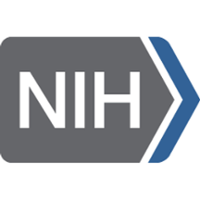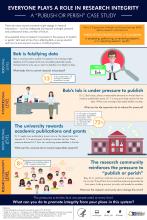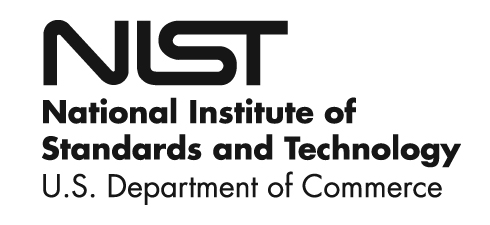 Sponsored Programs' Pre-Award Guide for Procurements Sponsored Programs' Pre-Award Guide for Procurements
The OSP has developed a Pre-Award Guide for Procurements to inform principal investigators of possible procurement requirements they might encounter when budgeting for goods and services.
______________________________________________
Reminder
Upcoming NSF Preliminary Proposal Deadlines
January 19, 2017
Division of Integrative Organismal Systems Core Program (IOS), NSF 17-508
https://www.nsf.gov/publications/pub_summ.jsp?ods_key=nsf17508
January 23, 2017
Division of Environmental Biology (core programs) (DEB), NSF-512
https://www.nsf.gov/publications/pub_summ.jsp?WT.z_pims_id=503634&ods_key=nsf17512
January 23, 2017
Long Term Research in Environmental Biology (LTREB), NSF 17-513
https://www.nsf.gov/publications/pub_summ.jsp?WT.z_pims_id=13544&ods_key=nsf17513
For the above deadlines, the Office of Sponsored Programs (OSP) does not require principal investigators to obtain approvals via the Internal Approval Form as per usual procedure because there is no budgetary information to be disclosed at the pre-proposal stage. However our office will stand by to check items in FastLane for you and to ultimately submit the pre-proposal to meet the deadline. Please plan to provide the OSP with SRO access to view edit, and submit the completed preliminary proposal at least five (5) business days before the deadline.
______________________________________________
NSF Update
 NSF Proposal & Award Policies & Procedures Guide (Effective Jan 30, 2017) NSF Proposal & Award Policies & Procedures Guide (Effective Jan 30, 2017)
A revised version of the NSF Proposal & Award Policies & Procedures Guide (PAPPG), (NSF 17-1) has been issued. The PAPPG has been modified in its entirety, to remove all references to the Grant Proposal Guide (GPG) and Award & Administration Guide (AAG). The document will now be referred to solely as the NSF Proposal & Award Policies & Procedures Guide.
Given the number of important revisions, the community is strongly encouraged to review the by-chapter summary of changes provided at the beginning of the PAPPG.
The new PAPPG will be effective for proposals submitted, or due, on or after January 30, 2017. Note, while this version of the PAPPG becomes effective on January 30, 2017, in the interim, the guidelines contained in the current PAPPG (NSF 16-1) continue to apply.
______________________________________________
NIH Update
Consider Submitting an R21 Grant
The NIH Exploratory/Development Research Grant Award (R21)
The R21 activity code "is intended to encourage exploratory/developmental research by providing support for the early and conceptual stages of project development." NIH seeks applications for "exploratory, novel studies that break new ground," for "high-risk, high-reward studies," and for projects that are distinct from those that would be funded by the traditional R01 Research Project Grant mechanism. R21 grants are short duration (project period for up to 2 years) and lower in budget than most R01s (combined budget over two years cannot exceed $275,000 in direct costs). NIH institutes and centers (ICs) approach the R21 mechanism in variable ways: 18 ICs accept investigator-initiated R21 applications in response to the parent R21 funding opportunity, while 7 ICs only accept R21 applications in response to specific funding opportunity announcements.
Competition for both the R01 and R21 is stiff. In FY2015, success rates for Type 1 R21 applications were only 14%, compared to 16% for Type 1 R01 applications. Over time, the number of R01 awards has gradually declined, while the number of R21 awards has substantially increased. NIH reports that the numbers of applications have increased substantially for both activity codes, but the rate of growth has been much greater for R21s. In 2001, NIH received six R01 applications for every R21 application received; while in 2015 the ratio of R01 applications to R21 applications less than 2. In using the new investigator policy definition to identify new investigators, on average across the last five fiscal years, approximately 35% of R01 applications, and 50% of R21 applications, are submitted by new investigators. In case of awards, 35% of R01 awards and 34% of R21 awards are made to new investigators. Data mining at NIH reveals the following:
- The R21 mechanism is increasingly popular - we are seeing many more applications and awards, with growth rates exceeding those of R01 grants - but also highly competitive.
- Most R21 applicants and awardees have previously received some NIH funding; only 34% of R21 awardees were new NIH investigators.
- Over 15% of R21 awards are followed by at least one similar R01 application, but fewer than 5% of R21 awards are followed by at least one similar funded R01 project.
Reference this link for the full story and graphical representations of findings.
______________________________________________
Timely Topics
 New Resource for Grants Seekers in Search of Private Funding New Resource for Grants Seekers in Search of Private Funding
Debbie Peronne is JMU's new Director of Corporate and Foundation Relations in the Office of Development. She comes to us from Johns Hopkins University where she worked closely with faculty members and the Office of Sponsored Projects to secure non-governmental grants, with an emphasis on private foundation support for research. With 35 years of experience in the field, she will collaborate with our office to identify new funding opportunities, advise faculty about seeking grants from private funders, explore grant-maker interest in specific faculty projects, and help faculty prepare proposals of the highest quality. Debbie's email is perrondl@jmu.edu.
______________________________________________
Compliance Corner
Avoiding Plagiarism, Self-plagiarism, and Other Questionable Writing Practices: A Guide to Ethical Writing
The purpose of this module is to help students, as well as professionals, identify and prevent questionable practices and to develop an awareness of ethical writing. This guide was written by Miguel Roig, PhD, from St. Johns University with funding from ORI. | website| Download PDF of this Module|
 Infographics Infographics
The Office of Research Integrity (ORI) has developed a series infographics addressing the Responsible Conduct of Research and the handling of research misconduct. These infographics can be used by RCR instructors and Research Integrity Officers (RIOs) to help educate the community on research integrity topics. ORI encourages the sharing and distribution of these resources with colleagues. Click here to view the series of infographics.
|




 NIST Summer Undergraduate Research Fellowship (SURF) Program
NIST Summer Undergraduate Research Fellowship (SURF) Program 
 Sponsored Programs' Pre-Award Guide for Procurements
Sponsored Programs' Pre-Award Guide for Procurements 
 NSF Proposal & Award Policies & Procedures Guide (Effective Jan 30, 2017)
NSF Proposal & Award Policies & Procedures Guide (Effective Jan 30, 2017)
 New Resource for Grants Seekers in Search of Private Funding
New Resource for Grants Seekers in Search of Private Funding
 Infographics
Infographics